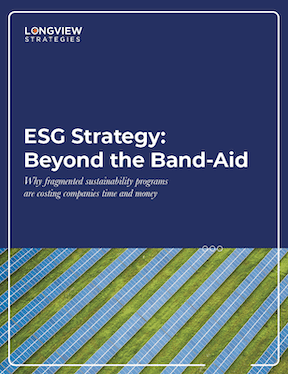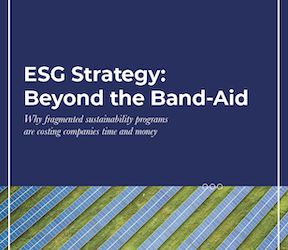We are halfway through 2021, it feels like a suitable time to pause, reflect, and check in on the marketing trend predictions we made in December of last year. The top 2021 marketing trends include brand’s growing role in social responsibility, the importance of purpose-driven brands, and constant post-pandemic reassessment as we establish our next normal. Have these trends changed or evolved? Let’s see.
Brand’s growing role in social responsibility
This trend has only heightened in 2021 with an ample number of examples to demonstrate its importance. Globally, brands joined the call to end anti-Asian hate and expressed solidarity through social media and donation pledges after horrendous attacks on the Asian community in the past couple of months. Brands such as Yelp launched a new feature that helps identify and support Asian-owned small businesses in order to help drive customers to Asian-owned shops and restaurants.
Brands also reached beyond their “business as usual” to address climate change. Recently, the U.S. hosted an international summit with other world leaders, and President Biden announced that the U.S. will work to reduce its greenhouse gas emissions by 50% from 2005 levels by 2030. Individuals will need to be cognizant of their climate footprint, but the heavier lifting will need to come from corporations. Yum Brands, parent company of KFC, Taco Bell, Pizza Hut, with more than 50,000 restaurants globally, announced its plan to cut greenhouse gas emissions in half by 2030 in partnership with franchisees, suppliers, and producers.
Their strategy includes investing in green buildings, accelerating renewable energy, and collaborating with climate-forward partners to accelerate the transition to a zero-carbon energy future.
The importance of purpose-driven brands
Remember, consumers still and will continue to champion brands that are driven by their core mission. Customers support companies that live out their values and leadership that does the same. A new, shining example of this: LinkedIn gave their employees a paid week off in April to focus on their own wellness and combat pandemic-related burnout. Other companies have expanded access to online mental health resources or coaching employees on how to better support workers dealing with pandemic-related stress. Taking care of your employees in your own authentic way leads them to taking care of the customers in a genuine, long-term way. Employees are stakeholders, too.
Patagonia is an additional and well-recognized example of a purpose-forward brand; they have led the charge and advocated for sustainable business practices for years now. Most recently, Patagonia ended its decades-old practice of adding corporate logos to its clothing. The company noted adding the additional corporate logo reduces the lifespan of the garment, making it less likely to be regifted and more likely to be thrown away.
Constant post-pandemic reassessment as we establish our next normal
With CDC guidelines for re-opening in effect, optimism is rising. Even more “post-pandemic” consumer buying trends have made a permanent stay; processes such as contactless delivery, contactless payments, virtual and/or hybrid model events, increases in online media usage, and a lessened enthusiasm for in-store visits in general.
As marketing budgets start to re-balance and shift, the pandemic has forced companies to reckon with their digital presence and has accelerated the complete transformation to online branding and engagement. This trend isn’t slowing down anytime soon. Brands will be prosperous when they own their role and responsibility in our country’s social justice movement, stay grounded in their purpose and core mission in all aspects of their actions and communications, and remain agile and contemplative when it comes to adapting to a post-pandemic marketing landscape.




